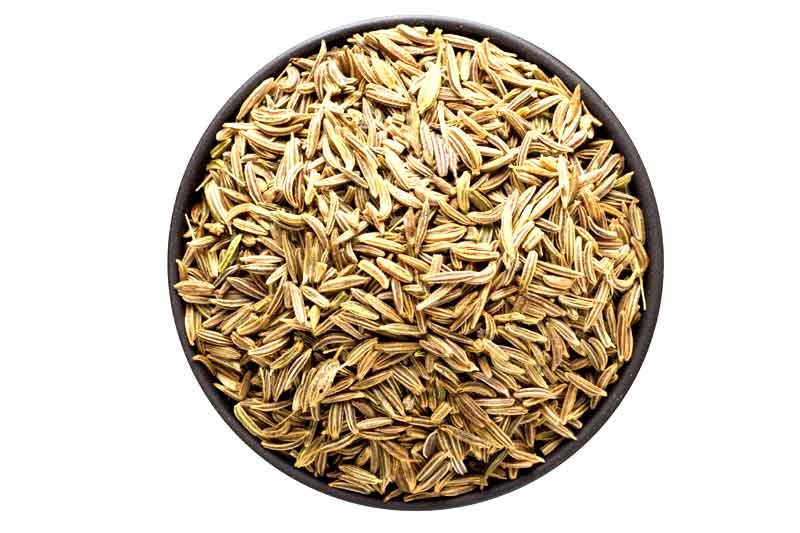Quick Facts
Botanical Name: Carum carvi
Family Name: Apiaceae
Common Name: Meridian fennel
Part used: Seeds
Specific Gravity: 0.900-0.910 at 20 °C
Optical Rotation: + 75° to + 80°
Refractive Index: 1.485-1.497 at 20 °C
Blends Well With: Basil, Coriander, Orange
Uses: The oil has many culinary applications and gives rye bread its flavor.
This oil is a good liver tonic and rejuvenates the body.
Countries where it's found
The plant is native to Egypt, Europe, northern Africa, and western Asia. It grows in Morocco, Turkey, and America. The largest producing counties of caraway essential oil are Hungary and Germany.
Harvesting Information
The plant is harvested in mid-June or in august. The seeds re bets harvested when they turn rich brown.
History of the Plant
The plant is native to Egypt, Europe, northern Africa, and western Asia. It grows in Morocco, Turkey, and America. The largest producing countries of caraway essential oil are Hungary and Germany.

Extraction Process
Caraway oil is extracted by steam distillation from dried ripe seeds and yields around 2 to 8 percent oil. The oil is colorless to pale yellow with a string odor and spicy, warm taste.
Commonly known BenefitsMedicinal Benefits
Caraway oil is found good for cardiac health. It aids in maintaining proper heart beat rate, lowers blood pressure, lowers blood cholesterol level, prevents hardening of veins and arteries, and strengthens cardiac muscles.
€¢ The oil has good affinity to the digestive system and efficiently treats the gastrointestinal tract.
€¢ The oil effectively stimulates gastric secretions thus regulating the stomach function.
€¢ Caraway oil consists of carvone, carvol, and limonene that has an invigorating effect on the whole body. The oil strengthens and regulates digestion, improves appetite, relieves from gas, diarrhoea, bloating, and intestinal cramps.
€¢ The essential oil of caraway stimulates blood flow keeping the body warm and easing discomforts associated with rheumatism, gout, and arthritis.
€¢ Inhaling the oil eases congestion and loosens the mucus.
€¢ Topical application of the oil treats acne and regulates oil production of the sebaceous glands.
€¢ Caraway oil acts as a good tonic. It tones the liver, reduces wrinkles and fine lines, and recharges the body.
€¢ External application of the oil treats cough and cold, leprosy, vertigo, warts, rashes, brightens the skin, hair loss, and toothache.
€¢ The oil's internal application effectively treats tension, fatigue, nervousness, diabetes, meningitis, vomiting, fever, hypertension, insomnia, and issues related to the endocrine glands.
€¢ Its aperitif properties clear the bowels and ease constipation.
€¢ Caraway oil is traditionally used for bronchitis, intestinal colic, and flatulent colic in children.
€¢ It promotes milk secretion in lactating mothers. It improves the quality and the quantity of milk.
€¢ The essential oil of caraway is a good antiseptic and disinfectant. It cures urinary and excretory system. Further, it inhibits the bacterial and fungal growth preventing wound infections and ulcers.
€¢ The oil acts as an effective antihistaminic, antimicrobial, stimulant, stomachic, and tonic, larvicidal, carminative, expectorant, diuretic, antispasmodic, astringent, and antiseptic.
Other Benefits:
€¢ Caraway oil is used as a spice in bread, meat, sauces, pickles, and seasonings.
€¢ It is also used as veterinary medicine.
€¢ The oil is used as a fragrance in perfumes, lotions, and soaps.





